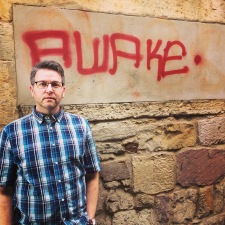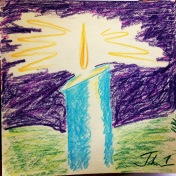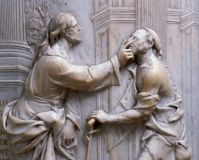
Your psalmist in Edinburgh
Returning home from 11 days in the U.K., I felt tired.
It was a delightful trip with my BFF Michael. Just the right length of time, and I felt excited to be back with Trish and Sam and Willow (wife, son and dog, respectively), but I was surprised how kind of burned out I felt. Jet lag? Vaca hangover? This felt different than the familiar re-entry from travel that I’m so accustomed to as a touring musician.
After almost 2 weeks away from my work with the psalms, I sighed and set to work on my weekly podcast nugget for Pulpit Fiction.
And something in me woke up.
I leaned in with sparkle-y attention, I hungrily studied, I joyously sang, I delighted to translate. What a surprise! What a Relief!
I thought I needed rest. What I needed was the work of my heart.
Poet David Whyte writes in Crossing the Unknown Sea a word he received at a critical moment in his life: “The antidote to exhaustion is wholeheartedness.”
As you read this now, if you are burned out, discouraged or lost, welcome the companion of David Whyte’s story. This excerpt is probably my favorite work of his and among my favorite literature on the planet.
Psalm 86 sings, “Give me an undivided heart.” With gratitude for my own vocation as a psalmist– exceedingly nerdy as it is– I wish you the dense, crystalline, sustainable sense of purpose that both energizes your life and serves the world.

 The Word of God became flesh.
The Word of God became flesh.
 And it came to pass on the day following the Sabbath that Jesus pinched a nerve in his back while painting a neighbor’s house. For his day job was carpentry.
And it came to pass on the day following the Sabbath that Jesus pinched a nerve in his back while painting a neighbor’s house. For his day job was carpentry.